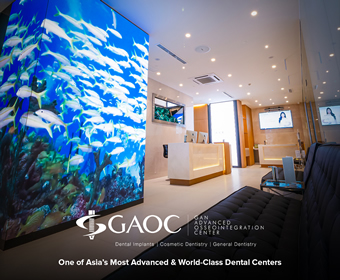The Singapore semiconductor industry gathered key stakeholders at a highly anticipated roundtable today to address the critical challenges and opportunities related to clean energy adoption within the industry.
Hosted by SEMI Southeast Asia and the Asia Clean Energy Coalition (ACEC), the roundtable, titled ‘Accelerating Clean Energy Adoption in Singapore’s Semiconductor Industry: Challenges and Policy Recommendations’, was held this afternoon at the Suntec Convention Centre.
As a significant contributor to Singapore’s economy and an environmentally conscious industry, it is crucial for the semiconductor sector to transition towards more sustainable energy sources to remain competitive on the global stage.
Given the energy-intensive nature of semiconductor manufacturing, shifting to clean energy is both an environmental imperative and a business necessity. With global tech giants and semiconductor companies setting ambitious net-zero emission targets for their operations and supply chains, the semiconductor sector in Singapore must ensure it has access to reliable and cost-effective renewable energy.
Key areas of discussion at the roundtable included the following topics:
1. Current State and Challenges: Examining the energy supply-demand gap and identifying regulatory barriers that hinder clean energy adoption within the semiconductor sector.
2. Strategic Solutions: Collaboratively identifying potential solutions, such as cross-border energy imports, green hydrogen, and financial mechanisms like the Future Energy Fund.
3. Actionable Outcomes: Aligning clear policy recommendations and regulatory frameworks to drive clean energy adoption in Singapore’s semiconductor industry, including cross-border energy trade and hydrogen adoption.
Agenda and Policy Recommendations
The roundtable’s agenda focused on actionable steps the industry and government can take together. Key policy recommendations tabled at the roundtable include:
1. Energy Import Declaration with Neighbouring Countries: Establishing a credible, traceable framework for cross-border energy trade within the ASEAN Power Grid (APG).
2. Expanding the Role of Singapore’s Transmission System Operator (TSO): Supporting ownership of electricity import infrastructure to enhance clean energy accessibility.
3. Future Energy Fund: Leveraging financial mechanisms to support the transition to low-carbon alternatives.
4. Streamlining Permitting Processes: Establishing a “One-stop shop” for import plan permitting to simplify regulatory approvals.
5. Developing ASEAN Hydrogen Ecosystem: Creating a regional hydrogen market to foster green energy collaboration.
6. Government Support for Green Hydrogen Adoption: Exploring direct and indirect support mechanisms to boost hydrogen usage in the semiconductor industry.
Mousumi Bhat, VP, Global Sustainability Program, SEMI said, “As the semiconductor industry continues to be a cornerstone of Singapore’s economy, we must accelerate the transition to clean energy.
“Addressing the current energy challenges through collaborative policy frameworks and innovative solutions, such as cross-border energy imports and green hydrogen, will ensure the industry’s sustainability and global competitiveness. This roundtable is a key step towards forging a path for the semiconductor sector to embrace renewable energy while driving long-term growth.”
According to Suji Kang, Program Director, ACEC, “ACEC is committed to supporting transformation efforts by working with key stakeholders to identify regulatory requirements and overcome financial barriers to clean energy adoption. We are particularly supportive of efforts to achieve policy and technical alignment across governments and industries to facilitate cross-border energy trade. We are keen to work together to ensure a more sustainable and resilient future for energy buyers, sellers, and investors across the ecosystem.”
The post Singapore’s Semiconductor Industry Tackles Clean Energy Adoption at Key Roundtable first appeared on Energy Asia.





